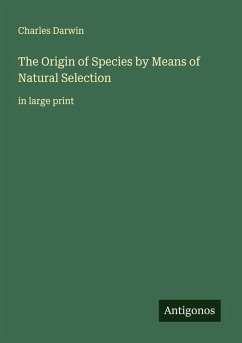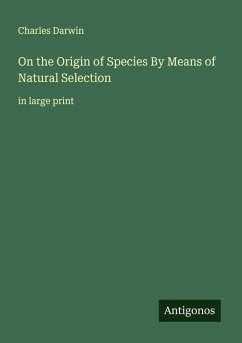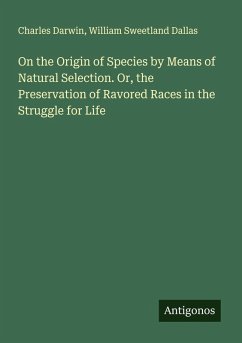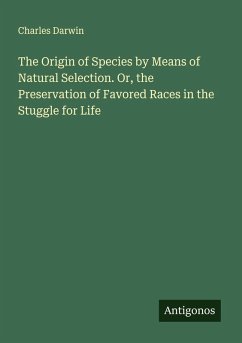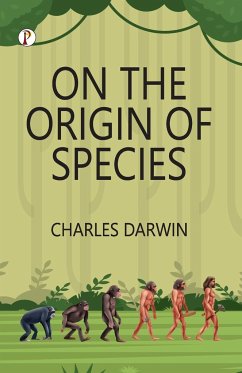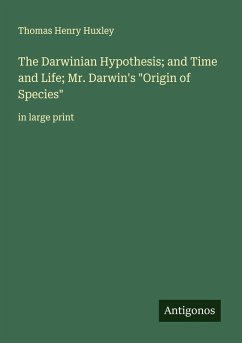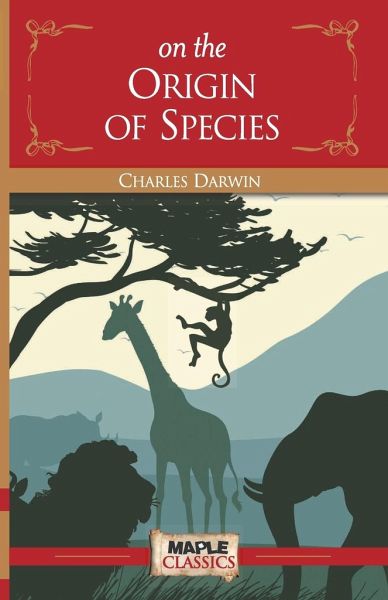
On the Origin of Species
Versandkostenfrei!
Versandfertig in 1-2 Wochen
23,99 €
inkl. MwSt.

PAYBACK Punkte
12 °P sammeln!
Perhaps the most readable and accessible of the great works of scientific imagination, On The Origin of Species sold out on the day it was published in 1859. Its popularity is still undiminished. Based largely on Darwin's experience as a naturalist while on a fiveyear voyage aboard H.M.S. Beagle, On the Origin of Species explains the mechanism of natural selection: the idea that made evolution scientifically intelligible for the first time. On the origin of Species is one f the landmark works that has helped shape the modern world. The book has fresh applications today for its pioneering views...
Perhaps the most readable and accessible of the great works of scientific imagination, On The Origin of Species sold out on the day it was published in 1859. Its popularity is still undiminished. Based largely on Darwin's experience as a naturalist while on a fiveyear voyage aboard H.M.S. Beagle, On the Origin of Species explains the mechanism of natural selection: the idea that made evolution scientifically intelligible for the first time. On the origin of Species is one f the landmark works that has helped shape the modern world. The book has fresh applications today for its pioneering views on the ecology of plants and animals.



